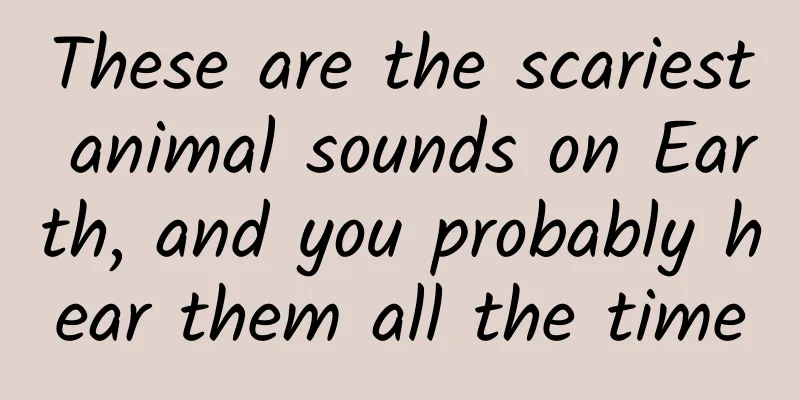These are the scariest animal sounds on Earth, and you probably hear them all the time

|
Lions, tigers, bears, when these animals roar, they scare all the wild animals into hiding. What is the scariest sound you can think of? A new study shows that animals from impalas to elephants are more likely to flee from a talking human than from a roaring lion . The study has been published in the journal Current Biology. The main participant of the study, Liana Zanet, a professor of biology at Western University in Canada, and her colleagues found that people overlook the factor of fear in the interaction between predators and prey. "We humans have lived on Earth for a long time without realizing how terrible this is for animals," Zanet said. "When we think about how predators affect prey populations, we think directly about killing, right? Like when a lion walks into a herd of zebras and kills one, the herd loses a member. But even if predators don't kill their prey, they still scare their prey and affect their behavior." Image source: Pixabay "When you hear predators around you, you get scared," Zanet said. Even if you're a biology professor. When Zanet heard lions growling in South Africa, she would run away instead of wandering around. All animals, even humans, evolved to be prey to other animals. So when people encounter life-threatening events, they will have the same reaction and take various defensive measures to avoid being preyed on. It's just like when we run away in panic when something goes wrong in our lives. However, we can also see that this has costs, and that this will require some trade-offs. In previous research, Zanet and colleagues have found that fear affects the health of animals from pumas to sparrows to European badgers . "Frightened prey will eat less. We've found in other studies that this affects populations and has a knock-on effect on organisms further down the food chain. These are the ecological consequences of fear," Zanet said. Animals do get scared of us humans. After conducting a global survey, Zanet and others found that humans kill animals at a much higher rate than other predators. But are humans as scary as the predators we usually think of as scary, such as lions, tigers and bears? To find out, Zanet and her colleagues went to South Africa. "Humans generally think of lions as the 'king of beasts'," the most terrifying carnivore on the planet, and South Africa is where the lion population is the largest. So if animals are most afraid of this large carnivore, then we may get the answer there." Out in the savannah, Zanet and her team looked to local fauna to determine "who is more threatening, the lions or us? Or the sound of a person talking, or the sound of a bird singing..." And what did they find? Animals were twice as likely to flee after hearing a human voice than a lion's, Zanet said. When they hear the human voice, they leave the waterhole 40 percent faster than usual . This phenomenon has been verified in different animals. Leopards will flee from humans, but not lions; hyenas will flee from humans, but not lions. Zanet thinks this is incredible. Some animals take longer to run away. For example, giraffes, because of their large size, take a while to move. Warthogs disappear immediately. And for southern white rhinos…they take a while to run away. They have a big head, and they have to turn their head first, then move their heavy body, and then they can run away smoothly. Image source: Pixabay But once they start running, they don't stop. In the video recorded by the researchers, the rhinos are clacking and clacking their way up the hill. In another video, a leopard was dragging a large blackbuck home, but after hearing the human voice, it abandoned the food and ran away quickly, not even daring to look back. They also observed that when elephants heard the roar of lions, they did move. But in several videos recorded in this study, they were actually moving in the direction of the sound. “My favorite recording was from an elephant,” Zanet said. “One night, the elephants got so agitated by the presence of a lion that they smashed the camera and the screen went black. But it was still picking up the sound, so you could hear the elephant’s cry as it eventually left.” However, the elephants have never reacted like this to human voices. Zanet thinks the elephants realize that lions are predators, but they can defend themselves from attack. And they do. But when the elephants realize that humans are predators, they can't defend themselves, so they flee. They also found that the animals responded very strongly to ordinary human conversations. "Who knew that humans just showing up there would have such an incredible impact on all kinds of animals? It's amazing," Zanet said. "It's really depressing, right? Because there are more than 8 billion of us, and our footprint is everywhere on the planet. So animal fear of humans is widespread on the planet, and it affects many different animals. This is a completely new impact that humans have on the environment." But they decided to focus on the more positive side. Part of their lab's work is conservation biology. The first rule of conservation biology is never to get depressed, or you can't do research. Zanet thinks that the animals' natural nervous response to human voices could prevent rhinos from going into dangerous poaching areas . The idea is that maybe there could be some speakers set up to play human voices so that the rhinos would hear it and think, "Okay, I hear human voices; humans are there. That's not a safe place. There's no way I'm going to go there." So they won't venture into those areas and they won't be killed. References https://www.scientificamerican.com/podcast/episode/the-worlds-most-frightening-animal-sounds-like-this/ Planning and production Source: Global Science (ID: huanqiukexue) By Karen Hopkin Editor: Zhong Yanping |
<<: A small plant of Suaeda salsa is actually a master of tidal flat soil restoration
>>: The most expensive red wine in the world, maybe you have tasted it
Recommend
Ditch the milk and drink "plant milk"? Don't do it yet!
|||| Compiled by New Media Editor Fang Yongzhen T...
Heavy rain hits many places in Chongqing. Emergency safety guide before and after the rain →
From the 10th to today (11th), some areas in nort...
From the laboratory to commercialization, is the era of humanoid robots really coming?
Recently, there has been a lot of discussion abou...
Google now releases the second beta version of the Android 14 system developer preview
On March 9, Google released the first developer p...
How to plan Weibo operations from scratch?
Introduction: To be good at Weibo, fans and readi...
I want to listen to two songs at the same time, brain: No, I can't do that
I wonder if you have ever had this experience: If...
Next-generation smart SUV Aion V starts pre-sale at RMB 170,000
On April 27, with the theme of "Wonderful Ni...
There are so many super-Earths in the vast universe. Which one will be our second home?
How big should a super-Earth be to remain habitab...
What does the photo of the Earth and the Moon sent back by Tianwen-1 look like? The Tianwen-1 probe took a photo of the Earth and the Moon
On July 27, the optical navigation sensor on the ...
It's terrifying to think about it! Two apps and one minute can make your phone "naked" in front of strangers? ! Police remind →
Sitting far away typing Your phone can hear every...
Who will protect the security of facial recognition?
The first public crusade against facial recogniti...
How to play the Toutiao project, from account registration, material acquisition to video production and release
How to play the Toutiao account project, from acc...
Get ready for a new look for Android: Detailed explanation of the second developer preview of Android 12
In the early morning of March 18, the second Andr...
Teaching a fish to walk, can you scientists be more boring?
It is said that fish tanks, like thermos cups, ar...
What are the charges for 400 calls for individuals and enterprises?
There is a charge for making a 400 call. Below, F...

![[Energy History 01] A ghost in the water and a flower ended the two thousand years of atomic debate](/upload/images/67f26676f2d09.webp)







